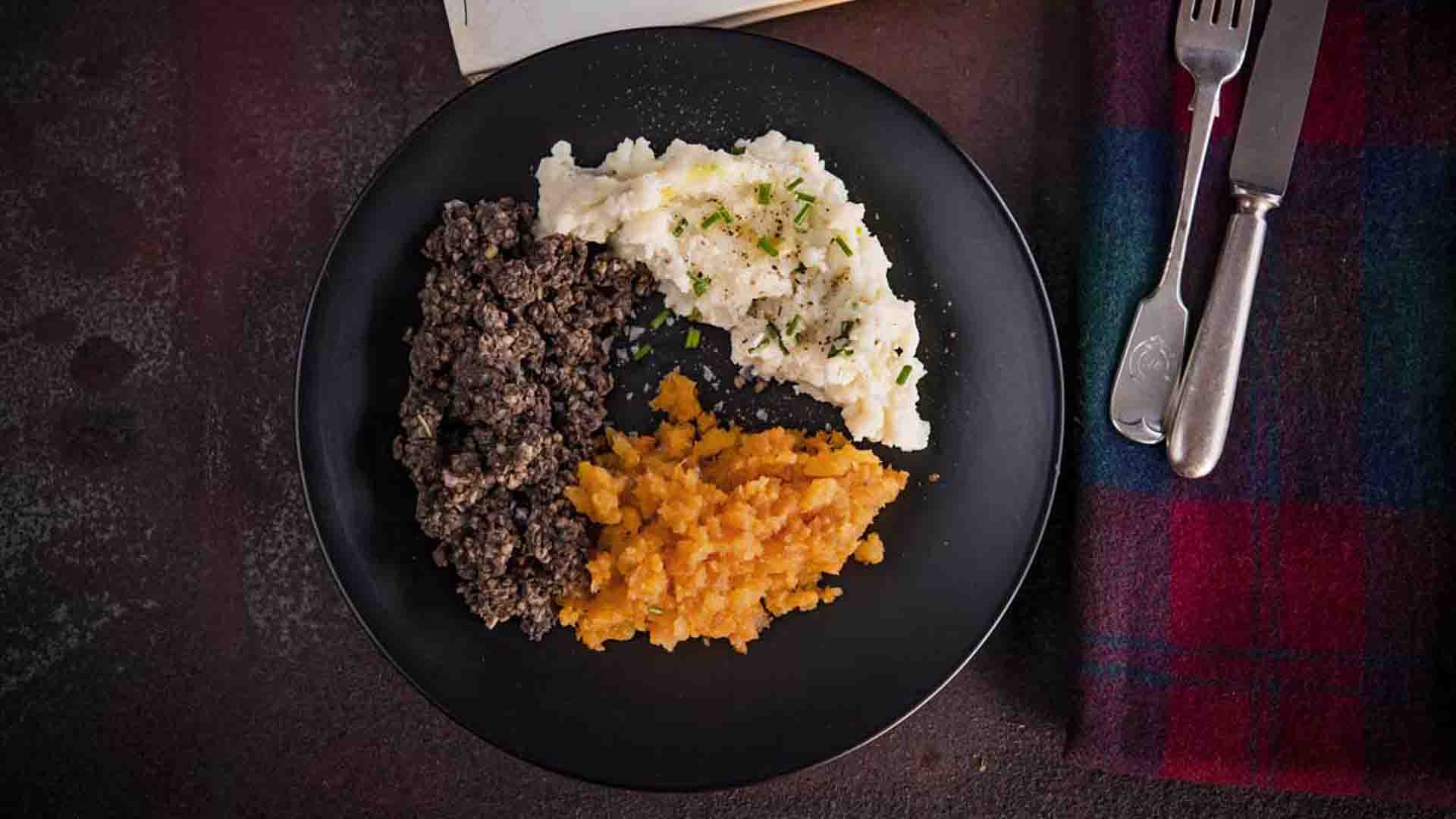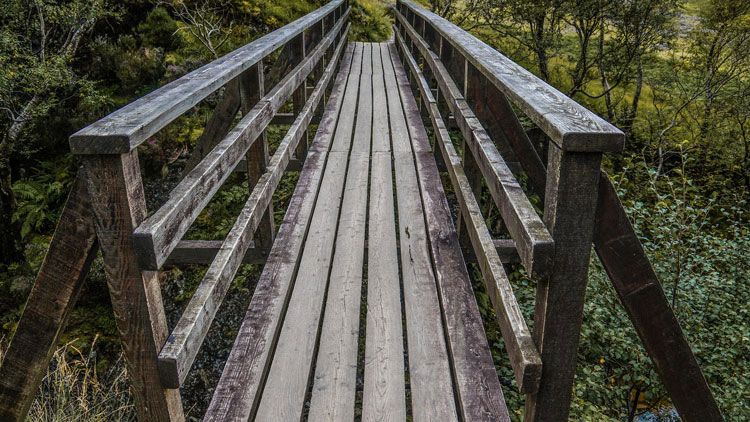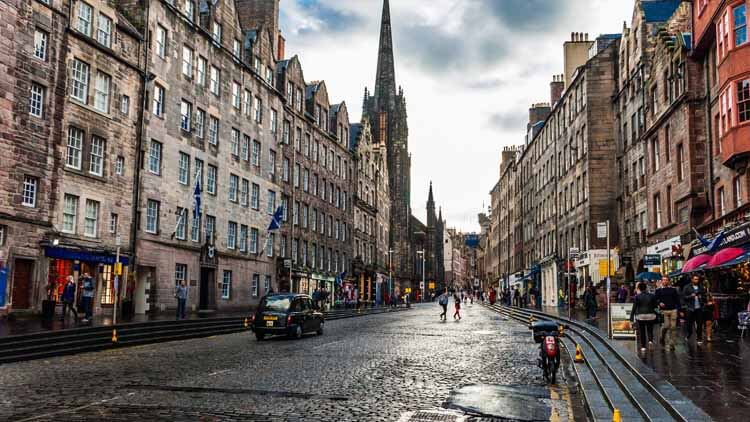It also has a long literary tradition, it’s most famous writer being Scottish national poet Robbie Burns. One of the reasons people continue to write and speak in Scots to this day is that it is an incredibly rich language, with many wonderful and fun words that, once you hear, you won’t be able to live without.
Here are 14 of our favourites scots words.
1. Shoogly
Pronounced shoo-glee
A word that just means wobbly, but sounds much better. Can also be used as a noun eg “Give it a shoogle”
2. Bonnie
Pronounced bon-ee
Pretty or beautiful. A pretty young women could be described as “a bonnie lass”, an attractive man as “a bonnie lad”.
3. Bairn
Pronounced bay-ern
Child. For example “Oh what a bonnie bairn.” Another Scots word for child is wain (pronounced way-n)
4. Eejit
Pronounced exactly how it looks
An idiot, a twit. “Will ye quit being such an eejit?”
Even more fun to say is dunderheid, which means the same thing. As does numpty (apparently we need a lot of ways to call people idiots in Scotland).

5. Dour
Pronounced do-er.
Moody, sullen. If you see a Scotsman after any time the Scotland team have played a football match, they will be extremely dour.
6. Wheesht
Pronounced as written.
Shush. Often preceded by an “Ach” for extra emphasis, and mainly said to wains and eejits.
7. Dreich
Pronounced dree-ch. The ‘ch’ noise is used in many Scots words, most famously the word ‘loch’ for lake. It is not simply a ‘k’ sound, but a rasping noise at the back of the throat not found in standard English, although it does appear in other languages such as Greek and Farsi.
A word used to describe the weather on days when it is drizzly, grey and just generally a wee bit rubbish. This is a very frequently used word in Scotland.
8. Blootered
Pronounced bloot-erd.
Used to describe a state of extreme intoxication. An excellent response to dreich days.
9. Tattie
Pronounced tat-tee.
Potato. In Scotland a scarecrow is sometimes called a ‘tattie-bogle’.

10. Ceilidh
Pronounced kay-lee.
Like a disco but with traditional music and dancing and people quite often wear kilts. So not very like a disco. They are fantastically high-energy, and in almost every ceilidh you will be walked through the steps before each dance so even complete beginners can join in. Definitely worth seeking one out while in Edinburgh.
11. Ken
Pronounced as written.
Although it technically means ‘know’, some Scots will use it to punctuate their sentences till the point where it feels like it has lost all meaning. Often used in conjunction with ‘ye’ meaning ‘you’ and ‘fit’ which means ‘what’.
“Di ye ken fit like, y’ken”.
12. Sassenach
Pronounced sa-so-nach, with the same ‘ch’ sound as dreich or loch.
A mildly insulting word for an English person, although it technically just means Saxon. If actually used, which is seldom, it will most likely be when an English person has committed some faux pas which demonstrates their English-ness, for example saying England when they actually mean the United Kingdom.
“Ye great numpty of a Sassenach! Di ye even ken fit like I’m saying?!”
(In the highly unlikely event that anyone calls you a Sassenach, you should call them a ‘teuchter’ (pronounced tyuchter) which is a Scots word for a country-bumpkin).

13. Minging
Pronounced ming-ing.
Nasty, disgusting. “That is just minging mate. Ye shouldnae get so blootered, y’ken?”.
Manky is used similarly, but means more specifically that something is rotten or mouldy.
14. Haver
Pronounced Hay-ver.
Possible the Scots word that has confused more people than any other. Made famous by the Proclaimers songs ‘500 Miles’, haver means to talk nonsense.
“Oh when I haver, oh I know I’m gonna be, I’m gonna be the man who’s havering to you.”

So there you have it. Hopefully you now feel prepared for Scottish conversation, and maybe even willing to risk dropping in one or two of your new Scots words.
Of course, there are literally thousands more Scottish words and it is important to remember that language in Scotland isn’t just divided between Scots and English. There is also Scots Gaelic, spoken mainly in Highlands and Islands, which is totally unintelligible to English speakers.
Even Scots isn’t the same everywhere. In Aberdeenshire, for example, a couple of hours drive north of Edinburgh a version of Scots is spoken which is called Doric. It’s called this after the type of Greek spoken by the ancient Spartans – Doric Greek.
Supposedly, the reason for the name was that in the Eighteenth and Nineteenth centuries the people of Edinburgh thought of themselves as the new Athenians of the world, and viewed the rural Aberdonians as the equivalent of the reputedly uncivilised and brutal Spartans.
If you want to find out why Edinburgh thought of itself as the new centre of civilisation come on our Free Tours, every day starting on The Royal Mile.








